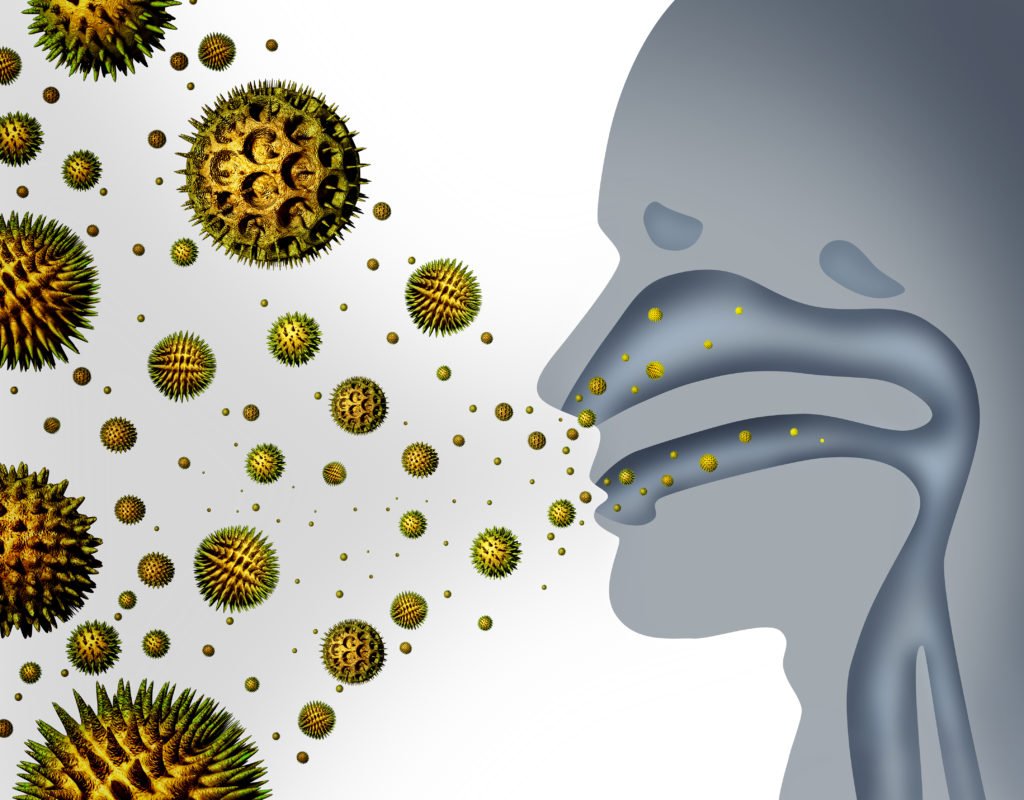Spring’s arrival often brings beauty and renewal, but for many, it also ushers in a season of itchy eyes, runny noses, and constant sniffles. The culprit? Often, confusion arises between seasonal allergies and the common cold. Though both can leave you feeling miserable, understanding the key differences is crucial as it empowers you to determine the cause and find relief, taking control of your health.

Why does Common Cold or Seasonal Allergy occur?
The root difference lies in what triggers the symptoms.
- Seasonal allergies occur when your body overreacts to harmless airborne particles like pollen, dust mites, or mould spores. Your immune system mistakenly identifies these particles as threats, triggering an inflammatory response. This response releases histamines, chemicals responsible for classic allergy symptoms like itchy eyes, runny nose, and congestion.
- Common cold: This is a viral infection, most commonly caused by rhinoviruses. These viruses invade the upper respiratory tract, causing inflammation and irritation of the nasal passages.
Symptoms:
While some overlap, some symptoms can offer clues about the source of your discomfort.
Common Cold:
- Runny or stuffy nose (may start clear but turn thick and green)
- Sore throat
- Cough (may be dry or productive)
- Sneezing (less frequent than allergies)
- Fever (not always present with allergies)
- Headache
- Body aches
- A general feeling of malaise
Seasonal Allergies:
- Itchy, watery eyes
- Runny or stuffy nose
- Sneezing (often in bouts)
- Postnasal drip (causing a sore throat)
- Clear, watery discharge
- Fatigue
- Itchy ears or palate
Duration:
The duration of symptoms is another indicator.
Common cold:
Cold symptoms usually peak within 2-3 days and resolve within a week to 10 days. In some cases, a cough may linger for a couple of weeks.
Seasonal allergies:
Symptoms typically persist as long as exposure to the trigger continues. They may worsen during specific times of the year (pollen season) and improve with minimal exposure or during allergy medication use.
Prevention and Treatment of Common Cold and Seasonal Allergy
Knowing the cause helps you choose the right approach.
- Common cold: No specific cure exists, but supportive measures can ease symptoms.
- Treatment: Over-the-counter pain relievers can address fever and aches. Rest, fluids, and a humidifier can help alleviate congestion.
- Seasonal allergies:
- Prevention: Minimize exposure to triggers. Check pollen counts and limit outdoor activities during peak times. Keep windows closed and use air purifiers.
- Treatment: Over-the-counter antihistamines often provide relief. For severe cases, nasal corticosteroids may be considered. Consult a doctor for customized treatment plans or immunotherapy (allergy shots).
When to See a Doctor:
While both allergies and colds are usually self-limiting, seek medical attention if:
- Symptoms worsen or persist for more than two weeks.
- You experience a fever above 102°F (38.9°C) or severe headache.
- You have difficulty breathing or wheezing.
- Symptoms worsen despite treatment.
Living with Seasonal Allergies and Common Colds:
Seasonal allergies and the common cold can disrupt your daily life. By understanding the differences between the two and taking appropriate action, you can minimize their impact and enjoy a breath of fresh air—even during allergy season!
Additional Tips:
- Maintain a healthy lifestyle.
- Regularly wash your hands to prevent the spread of colds.
- Keep track of your symptoms to identify patterns and triggers.
- Consider consulting an ENT for a diagnosis and personalized treatment plan for allergies.
Remember, this information is intended for general knowledge and should not be a substitute for professional medical advice. We’re here to support you in your health journey. Consult an ENT doctor for diagnosis and treatment plans specific to your situation. They’re the best guide to help you navigate through your health concerns.
This article was edited by Dr Akanksha Saxena, Consultant ENT, Head & Neck Surgeon, ENT360, DLF Phase 1 and Sector 52, Gurgaon. She is an ENT Specialist in Gurgaon with over 14 years of experience. Read more of her blogs here.


